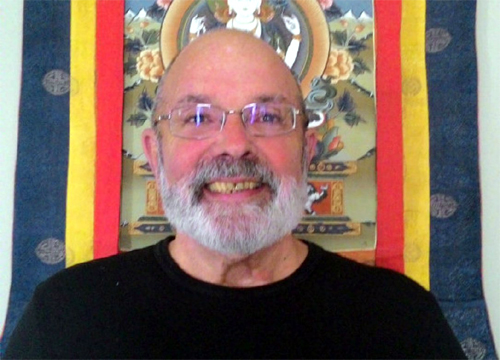|
|
|

June
19, 2016
By Nicholas Keung Immigration reporter
‘I
was floored,’ visa officer says of reunion with refugee
Retired
immigration officer describes being overcome with emotion when he
reunited with a refugee he helped establish a new life in Canada.

Dennis
Scown estimates he had interviewed more than 100 Baha’i families in his
three years in Islamabad. (Photo
courtesy Dennis Scown)
Dennis Scown had the all-powerful job of deciding who could and
couldn’t come to Canada.
Throughout his 35-year career with the immigration department — all but
six years in overseas visa posts — Scown had interviewed countless
prospective immigrants and thousands of refugees hoping to come to
Canada for a life away from war and persecution.
In his first management posting, he was assigned to the Islamabad visa
office in Pakistan in 1983, where he supervised two inexperienced line
officers and was in charge of Ottawa’s low-key resettlement plan for
the many Baha’i refugees fleeing neighbouring Iran.
Then a father of two young boys, Scown was a seasoned immigration
officer, previously involved in the processing of migrants from former
Eastern European countries during his four years at visa posts in
London and Vienna, as well as being part of the team tasked with
resettling thousands of Vietnamese refugees to Canada.
By his own estimate, he had personally interviewed more than 100 Baha’i
families in his three years in Islamabad.
“You always wondered how all these people you sent to Canada would do.
You take ownership of a case. You want to make sure the decision you
make is good for the family and it is good for Canada,” said Scown, 69,
who has an undergraduate degree in history and a master’s in political
science from the University of Calgary. “But the chance of me
remembering an individual family I have interviewed is nil.”
Scown gave it little thought when he was invited to be a presenter at
an academic conference in Ottawa in September about Canada’s Baha’i
community and received a dinner invitation from Afsoon Donna
Houshidari, a lawyer and one of the other speakers on his panel.
“I thought this is pretty cool and we would have a chance to talk and
get to know each other before the conference,” he said. “I had worked
in immigration and I thought she was interested in the process and the
nuts and bolts of that.”
Little did Scown know the dinner invitation was a plot by Houshidari to
have her mother identify whether the man was the same immigration
officer who saved the family from a life in limbo three decades earlier.
“The door opened. Of course, I couldn’t recognize them. I had black
hair and a black beard then. Last I saw her, Afsoon was 4. We were
sitting side by side and Afsoon brought out this IMM 1000 (landing
paper),” recalled Scown, who retired in 2008 after his final posting in
Damascus, Syria.
“I paused and was dumbstruck. I was floored. I had never met anybody
I’d processed and came to Canada. Seeing how successfully the family
had adapted and how Canadian they were, I got really emotional. It’s
just incredible.”
The rest of the evening, Houshidari and her mother shared with their
guests the story of how they settled here and thrived.
The next day, sitting next to Houshidari at their panel discussion,
Scown said he broke down in tears at one point.
“Afsoon and her family are an example of how good Canada’s refugee
program can be. It is what Canada was founded on. I’m just so proud of
them. It summed up the best part of my job,” said Scown. “She is the
poster child of a successful refugee story.”
Read more about: Iran
|
|
|
|
|